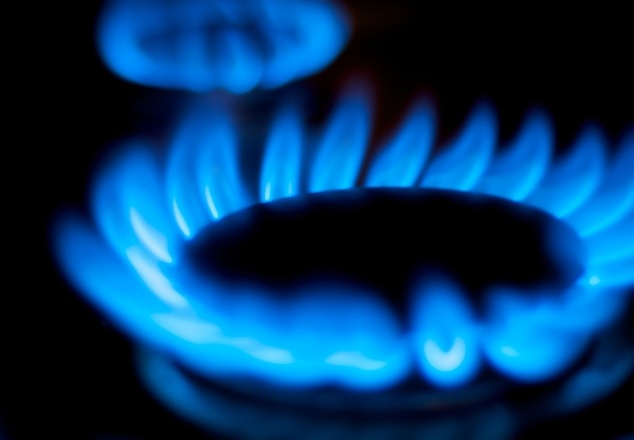European gas will cost Ukraine as much as Russian gas
On Saturday, August 16, test reversal gas supplies from Slovakia began using the “Voyany-Uzhgorod” pipeline. They are coordinated by “Ukrtransgaz,” the operator of the Ukrainian gas transportation system, and Slovakian Eustream, which is in charge of gas pipeline on its territory.
The organization of gas reversal, the supply of gas from the West to the East, is essentially a renewal of the initial Ukrainian gas transportation system exploitation plan. The pipeline was used for this until the mid-1970’s. Back then Moscow, Minsk, Vilnius and Riga consumed Ukrainian gas (Ukraine at the time was the USSR region for gas export). The same technical feature was used during the “gas war” in the winter of 2009, when “Gazprom” suspended its supplies, and it was necessary to transport gas from underground gas reservoirs in Western Ukraine to the Eastern regions.
At the end of April of the current year, “Ukrtransgaz” and Eustream signed a memorandum of mutual understanding regarding the provision of reverse gas supplies to Ukraine, and now the sides are preparing to execute commercial agreements.
It is expected that by the end of autumn, the European counteragents to national joint-stock company “Naftogaz Ukraine” will be determined, together with the conditions for gas supplies to Ukrainian consumers from EU territory starting September. About two dozen European suppliers have already expressed interests in supplying gas to Ukraine from Slovakia, Eustream claims.
Taking the tendencies of the gas market into account, the price conditions of such cooperation in the fall-winter period may turn out to be close to those offered to Ukraine by Russian “Gazprom” – about $480 per thousand cubic meters. There were instances when in peak periods of winter cold, gas prices on European spot markets reached $500 per thousand cubic meters. However, weather allowing, as well as in the fall, the price of gas at EU hubs may be lower than $400 per thousand cubic meters.
Agreements between “Ukrtransgaz” and Eustream prescribe two options for cooperation. According to the first, dubbed “small reversal,” supplies from Slovakia to Ukraine will reach about 22 million cubic meters of gas per day (about 8 billion per year) starting September of the current year. The second option, “big reversal,” prescribes certain consultations and additional agreements with “Gazprom’s” involvement. Thanks to this, the volume of reverse gas supplies to Ukraine may increase to 30 billion cubic meters per year.
Besides Slovakia, gas supplies to the Ukrainian market may be broadened from Hungarian and Polish territory, which transported about 2 billion cubic meters of gas purchased at European markets within the framework of the “Naftogaz” contract with German company RWE, to Ukraine.
We can help Ukraine become less dependent on Russia,” stated EU Commissioner for Fuel Gunther Ettinger, when commenting on the future of gas reversal from the EU. But this idea obviously does not sit well with the Russian monopoly, and they threaten to decrease their supplies to the European parters who will develop cooperation with “Naftogaz.”
The crisis in relations with “Gazprom,” which led to the suspension of the contract between the company and “Naftogaz” starting mid-June of the current year, also threatens a decrease of Russian transit through Ukrainian territory to EU countries. Therefore, for “Naftogaz” the problem of increase efficiency of the Ukrainian gas transportation infrastructure remains relevant.
The increase of reverse supplies from the territory of EU countries, as well as organization of the gas market based on Western Ukrainian underground reservoirs are the main elements of the solution examined by the national joint-stock company. Last week the Verkhovna Rada of Ukraine approved the government bill which allows to rent the gas transportation system and the underground reservoirs to western companies, however without the right to re-appropriation. In spring, the Ministry of Energy directed its proposals regarding joint usage of the gas transportation system to EU and US companies, and now “Naftogaz” is preparing for official meetings which will decide the fate of the Ukrainian pipeline.
Its part in European supplies of Russian gas in the short-term perspective remains quite pertinent. Not only because “Gazprom” uses it to carry out its contracts with consumers in Poland, Slovakia, Hungary and the Balkans, who have no reliable alternative for Russian gas as of yet.
Besides, Ukrainian underground reservoirs provide “Gazprom” with the stable execution of export contracts during high-demand periods among European consumers: their power allows to operatively satisfy significant orders. “Gazprom’s” bypass pipelines have no such ability. Therefore the European Union intends to employ assertive measures to ensure the security of Russian gas transit through Ukrainian territory.
Source: Forbes
Translated by Mariya Shcherbinina



